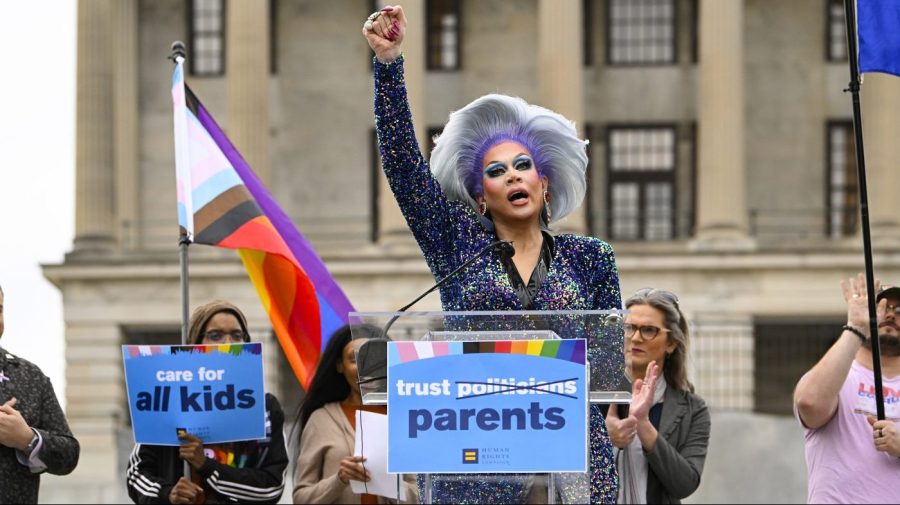
The Supreme Court on Monday declined to hear a challenge to a Tennessee law restricting some drag performances, allowing the first-in-the-nation law to remain largely intact.
In a brief, unsigned order, the justices denied a Tennessee theatre company’s request to intervene in its challenge to the state’s limits on drag, first enacted in 2023 by the Republican-dominated Legislature. While the law does not explicitly mention drag shows, state lawmakers said the measure was meant to restrict them.
A Tennessee court had previously deemed the law, which targets “adult-oriented performances” that take place in public or where they may be seen by minors, unconstitutional, blocking its enforcement in parts of the state. A federal appeals court reversed that decision in July, ruling that the Memphis-based theatre group Friends of George’s lacked the legal standing to challenge Tennessee’s restrictions.
Friends of George’s had argued the state’s law would negatively impact them because they produce “drag-centric performances, comedy sketches, and plays” outside of age-restricted venues. But the 6th U.S. Circuit Court of Appeals said the group did not risk violating the law because their performances were not “harmful to minors.”
In passing the restrictions on drag, state lawmakers amended Tennessee’s definition of adult cabaret entertainment to mean adult-oriented performances that feature topless or exotic dancers or “male or female impersonators.” Restricted performances must also be “harmful to minors,” which Tennessee law defines as lacking “serious literary, artistic, political or scientific values” and appealing “to the prurient, shameful or morbid interests.”
In dismissing Friend of George’s case, the 6th Circuit ruled the law only prohibits public performances that lack value “for a reasonable 17-year-old,” which the group argued to the Supreme Court unlawfully narrowed the scope of the law.
Friends of George’s did not return a request for comment on the high court’s decision not to hear the case.
Several GOP-led states have considered or passed legislation to restrict drag performances, which Republican lawmakers say are inappropriate for young audiences. Advocates have defended drag as a form of self-expression that challenges gender and societal norms and promotes inclusivity.
President Trump, who earlier this month announced he was ending the terms of several Kennedy Center board members and naming himself chairman, said that decision was made, in part, because of a drag performance held at the cultural center last year. In a post on Truth Social, Trump called drag performances “anti-American propaganda.”












